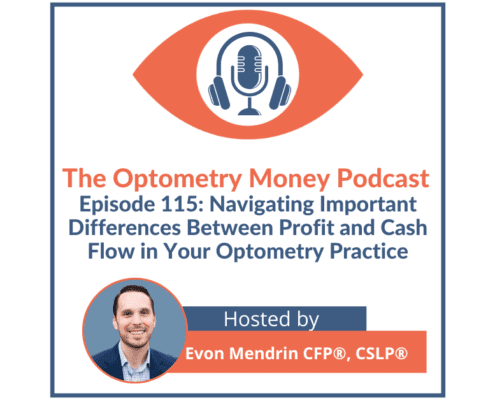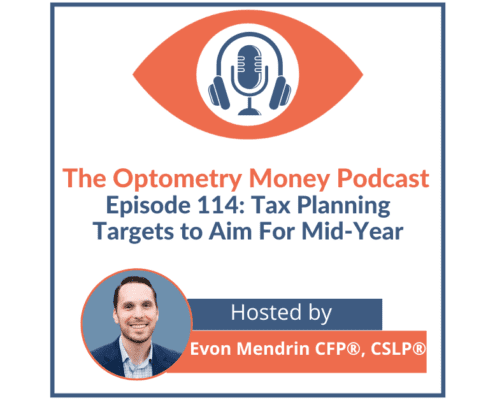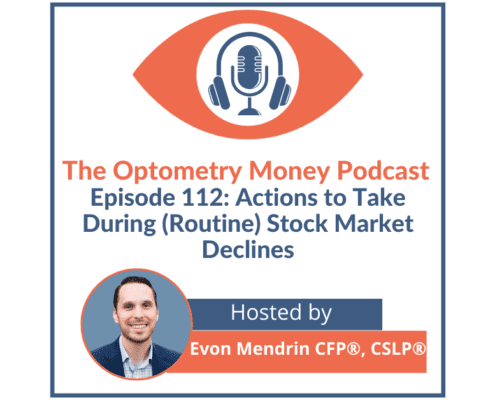Should you own an optometry practice? Or should you build a career as an associate optometrist?
This is a common question and a very important career choice. Practice ownership is the goal for many younger ODs, while more and more want to stay employed. Is ownership worth it? Is it all that it’s cracked up to be? Do you need to buy into or cold-start a practice to have a successful optometry career?
You often hear of the freedom that comes with practice ownership. But whichever path you choose – owning or remaining employed – there is freedom and tradeoffs down both roads. You need to choose the freedom you want the most.
The freedom of owning a private optometric practice
There is freedom that comes with owning your own practice.
Freedom to control your time and your life. How do you want to spend your time? Do you want to carve out certain days to spend with family? To watch kids’ sporting events? To work on other ventures? You can design your ideal life and build the business to fit around it. After all, the business should live to serve you, not you the business.
How do you want to spend your time in the practice? Focus on seeing patients as a clinician? Do you enjoy the aspects of business ownership and management? How many days do you want to dedicate to the different hats you wear as an owner? You can decide how to spend your time, put more time into the things that bring you energy, and delegate to your team.
Freedom to build the practice as you envision. Ownership gives you total control, autonomy, and creative freedom over the practice. You decide the patient experience and the demographic you serve. The services provided, frame lines available, and specialties added. You decide the processes, how to build the team, how to lead, and how to market your practice.
Autonomy and control are often the driving factors to practice ownership. You have a vision, and you want to carry out that vision.
Freedom to earn more and build greater wealth. You take on the risk and challenges of owning a business. In return, you should expect a return on your investment above and beyond what you can earn as an associate. You should see this in profit distributions and salary. The practice is also an asset on the balance sheet, with potential sale value in the future.
Practice owners have wealth-generating opportunities that are hard to replicate as an associate. I’ve seen this anecdotally, but it’s also supported by income studies like this 2021 survey report from Review of Optometry.
The freedom of working as an associate optometrist
You don’t always hear the words “employee” and “freedom” in the same sentence. But there is actually a lot of freedom with being an employed associate optometrist. In his Review of Optometric Business Article Practice Ownership: Is It as Good as You Thought It Would Be?, Chad Fleming, OD, FAAO shared his thoughts about the tradeoffs of practice ownership.
He writes:
“…if you factor in personal sacrifice, and that is something that you and your spouse are willing to give, then ownership is probably a good decision for you. If you want the freedom that not owning an optometry business provides, then you may want to work as an associate. Keep in mind that when you read articles or research about practice ownership, it is always easiest for those interviewed or surveyed to stroke their own ego. Telling you how much I make through ownership, and other high points, is fun to talk about, but admitting to the things that ownership has cost, is not as fun to talk about.”
So what is the freedom that comes with not owning an optometry business?
The freedom to leave work, go home, and turn off your brain. You don’t have to worry about the business after hours and take work home with you. After doing great patient care during the day, you can leave and focus on your family, friends, and other parts of your life.
When it’s time for time off, enjoy the break. You can take advantage of flexibilities like family leave and not worry about the business.
Ok, many of us professionals don’t always turn off the brain after hours. Sure, you think about patients and clinical cases at home. Yes, you’re scrolling through ODs on Facebook after hours. But the stresses and responsibilities of practice ownership aren’t following you home, and there’s a lot of freedom that comes with that.
As Dr. Fleming writes, “there are a significant amount of administrative responsibilities in owning a practice. At times, I would love to be an employed OD, rather than a practice owner, and just go home at the end of my clinical schedule.”
The freedom to focus your energy on one skill set. Practice owners need to learn not only how to be a better clinician but also how to market, build processes, understand your finances, and be a better business owner. There are administrative duties that come along with ownership. That’s a lot of energy and time spread out among different skills and responsibilities.
Associates can focus on being a better optometrist for your patients. You can put your energy into learning clinical and communication skills. Work on improving the profession and the lives of patients, or focus on things outside of optometry that interest you.
Associates can often be better practitioners with better technical skills than the owners because of this focus.
Financially, you’re still in a highly paying profession. There are many ways to increase your income outside of the optometry practice (hobbies, side hustles, investments, other businesses).
Choosing the freedom that’s right for you
Life is about tradeoffs, and with each choice comes benefits and drawbacks.
Practice ownership comes risk and responsibilities. There’s no guarantee that the business will succeed or continue to be competitive. There’s real financial risk for you – the practice is your most important asset, responsible for paying today’s bills and building future financial security.
You worry about administrative duties, hiring and firing, and leading your team. You’re responsible for growing the business. The decisions are greater and the hours are longer. There’s added stress that can affect your quality of life.
As an associate, your time, work, and income are largely controlled by your employer. You may be involved in decisions but don’t have final decision making in the patient experience.
There are benefits and drawbacks to each, and you should think through what your own goals and interests are to figure out what makes sense for you.
How do you decide if practice ownership is right for you?
There is no one right answer – it’s a very personal decision. I fully believe in the opportunities of owning a private optometry practice. I also believe the world needs optometrists that just want to give awesome care to patients. The whole profession can’t be a bunch of solo-practices.
So, how do you think this through?
Start with thinking about what excites you about the profession. What brings you joy and energy? Is it patient care and relationships? Do you get excited about growing a business? Do you want to be able to unplug after the day is over? Do you have a vision for how you’d run the practice and an itch to build the business around it?
Think about your personality. Are you able to handle risk and uncertainty in your life, or do you crave stability?
If ownership is on your mind, ask yourself “why?” Do you enjoy business and are comfortable with the way it could affect your quality of life? Do you want greater control over your life and the practice? If so, ownership may make sense for you.
If you’re driven only by the financial benefits, there are many other options that give you the ability to be financially successful. You can hit your financial goals without practice ownership, and you may not find the added responsibilities worth it.
Think more broadly about your life and your family. Does ownership fit with where your family is at right now? Is your spouse or partner on board? Do you have the financial runway? Is there a plan to get your cash flow and finances ready?
In their book The Optometrist’s Guide to Financial Freedom, Dat Bui and Aaron Neufeld give 5 questions to ask yourself about practice ownership:
- Can you take multiple responsibilities? You’re no longer just the doctor, but wear all the hats of ownership.
- Can you make tough interpersonal decisions? You are responsible for your team now.
- Can you stomach periods of negativity and utilize the experience for future growth? Owning a business isn’t smooth sailing.
- Can you take ownership of everything?
- Can you eat it? Long hours, extra work, and the brunt of everyone’s frustration.
If you can answer yes to these questions, you may be on the right track.
I had to answer these questions myself, sorting out whether to cold-start a financial planning firm for optometrists. Do I leave the steady job, solid income, and great clients to follow the vision? My wife and I wrestled through them together, and ultimately decided that it’s something I had to do.
There’s freedom down both roads. Choose the one that’s best for you.



 Optometry Wealth Advisors LLC
Optometry Wealth Advisors LLC Optometry Wealth Advisors LLC
Optometry Wealth Advisors LLC Optometry Wealth Advisors LLC
Optometry Wealth Advisors LLC
 Optometry Wealth Advisors LLC
Optometry Wealth Advisors LLC